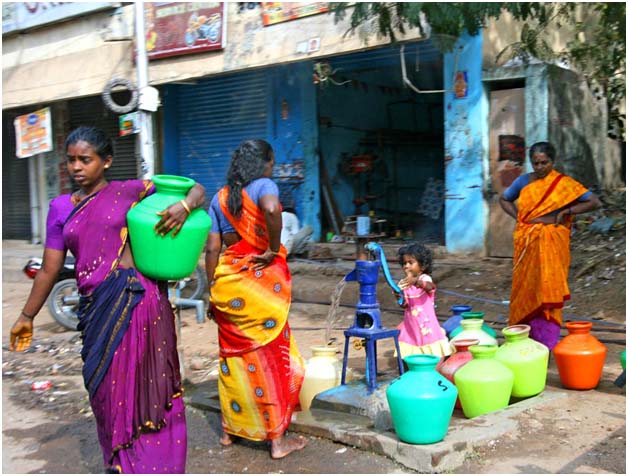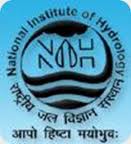/regions/political
Political
Water conservation, sustainable agriculture, challenges for rural development in Maharashtra and possible solutions - Talk by Popatrao Pawar, Sarpanch, Hivre-Bazar
Posted on 09 Feb, 2012 04:49 PMShri Popatrao Pawar is an inspiring promoter of the 'Ideal Villages Movement' on "Integrated Agriculture and Rural Development for Tomorrow's Maharashtra" on the occasion of the inauguration of Observer Research Foundation's Maharashtra@50 Study Centre on 24th June 2010.
Lift irrigation - Methods and practices: A manual by Mihir Maitra (AFPRO)
Posted on 09 Feb, 2012 12:07 PMAccordingly, the book is written as a technical manual that remains accessible to people seeking to gain necessary expertise in the planning, design, installation and maintenance of lift irrigation systems (LIS).
Governing the urban poor - Riverfront development, slum resettlement and the politics of inclusion in Ahmedabad - A paper published in EPW
Posted on 08 Feb, 2012 11:58 AMSabarmati Riverfront Development (SRD) project, an urban mega-project in Ahmedabad has been proclaimed as a case based on “flexible governing” of the residents of the riverfront informal settlements.
Safe water dissemination workshop by PATH held on January 19-20, 2012 at New Delhi
Posted on 07 Feb, 2012 10:15 PMGuest post: Amita Bhaduri
Through the Safe Water Project, it is seeking complementary solutions to sustainability and scale-up by exploring the potential for commercial enterprises to produce, distribute, sell, and maintain Household Water Treatment and Storage (HWTS) consumer products to low-income populations. The workshop shared learnings and tools from PATH’s Safe Water Project and presented the experiences of other organizations that are leveraging market-based approaches to achieve a sustainable public health impact.

Water quality monitoring of lakes in and around Bangalore city
Posted on 07 Feb, 2012 03:05 PMIt describes the efforts undertaken by the Karnataka State Pollution Control Board to launch a programme to monitor the water quality of some of the lakes in Bangalore so as to focus the attention of concerned governmental organisations to take up remedial measures to safe guard the water bodies of the "Garden City".
The sources of pollution in lakes are mainly identified as:
National symposium on "Water Resources Management in Changing Environment -2012", IAH, February 8-9, 2012, Roorkee
Posted on 07 Feb, 2012 02:03 PMOrganizer: Indian Association of Hydrologists (IAH)
Venue: National Institute of Hydrology (NIH), Roorkee

Description:
Water resources management requires a holistic and integrated view that considers the surface and groundwater together and also the direct human / indirect human needs. The sustainable management of water resources should base on an integrated approach linking development and protection of the natural environment, on the participation of all actors and concerned people and on the recognition of the economic and social value of water. We must promote the integration of all aspects of planning, management and protection of water resources by developing plans which aim to satisfy basic needs and to promote equitable and effective distribution of water resources, ecosystem protection and maintenance of the water cycle. Climate change, land use change and the hydrological variability of water's distribution and occurrence are natural driving forces that, when combined with the pressures from economic growth and major population change, make the water resources management a challenge. Water management plans should consider the best existing practices and the most advanced scientific breakthroughs.
"Realization of the right to sanitation in India – Challenges and ways", Workshop to be organised by Environmental Law Research Society, July 27-28, 2012, New Delhi
Posted on 07 Feb, 2012 12:38 PMOrganizer: Environmental Law Research Society (ELRS)
Venue: Environmental Law Research Society,
C-48, Third Floor,
Old Double Storey,
Lajpat Nagar – IV,
New Delhi – 110 024

Description:
ELRS is organizing a workshop in New Delhi, on 27 and 28 July 2012, to consider issues relating to the realization of the right to sanitation in India, and invites submission of abstracts.
National seminar on decentralized governance in water and sanitation in rural India, National Institute of Adminstrative Research, June 26-28, 2012, Mussorie
Posted on 07 Feb, 2012 12:13 PMOrganizer: National Institute of Administrative Research (NIAR), Mussoorie
Ministry of Drinking Water and Sanitation, Govt. of India
Venue: Lal Bahadur Shastri National Academy of Administration, Mussoorie
![]()
Description:
The National Institute of Administrative Research, Lal Bahadur Shastri National Academy of Administration, Mussoorie in collaboration with the Ministry of Drinking Water and Sanitation, Govt. of India is organizing a three days National Seminar on Decentralized Governance in Water and Sanitation in Rural India from June 26-28, 2012 at Mussoorie. The National Seminar is dedicated to academic discourse and practitioner engagement on Governance issues in the Water and Sanitation Sector. The papers received will be presented and documented in the form of a book after a peer review.
Nutrient-based fertiliser subsidy: Will farmers adopt agricultural best management practices? An article in EPW
Posted on 06 Feb, 2012 11:58 AMIt offers prospective benefits from the agro-environmental management point of view.
Towards good sense on Mullaperiyar - EPW - January (2007)
Posted on 06 Feb, 2012 07:59 AMIt makes some suggestions on the way in which it may be useful to proceed. The article argues that a new case has now been added to the existing list of river-water disputes and that the issue has turned very crucial as feelings are running high on the Mullapperiyar issue in both Tamil Nadu and Kerala, and that there is a risk that the dispute might become intractable. The article warns that wisdom is needed to avoid a serious deterioration of the relations between the two states.